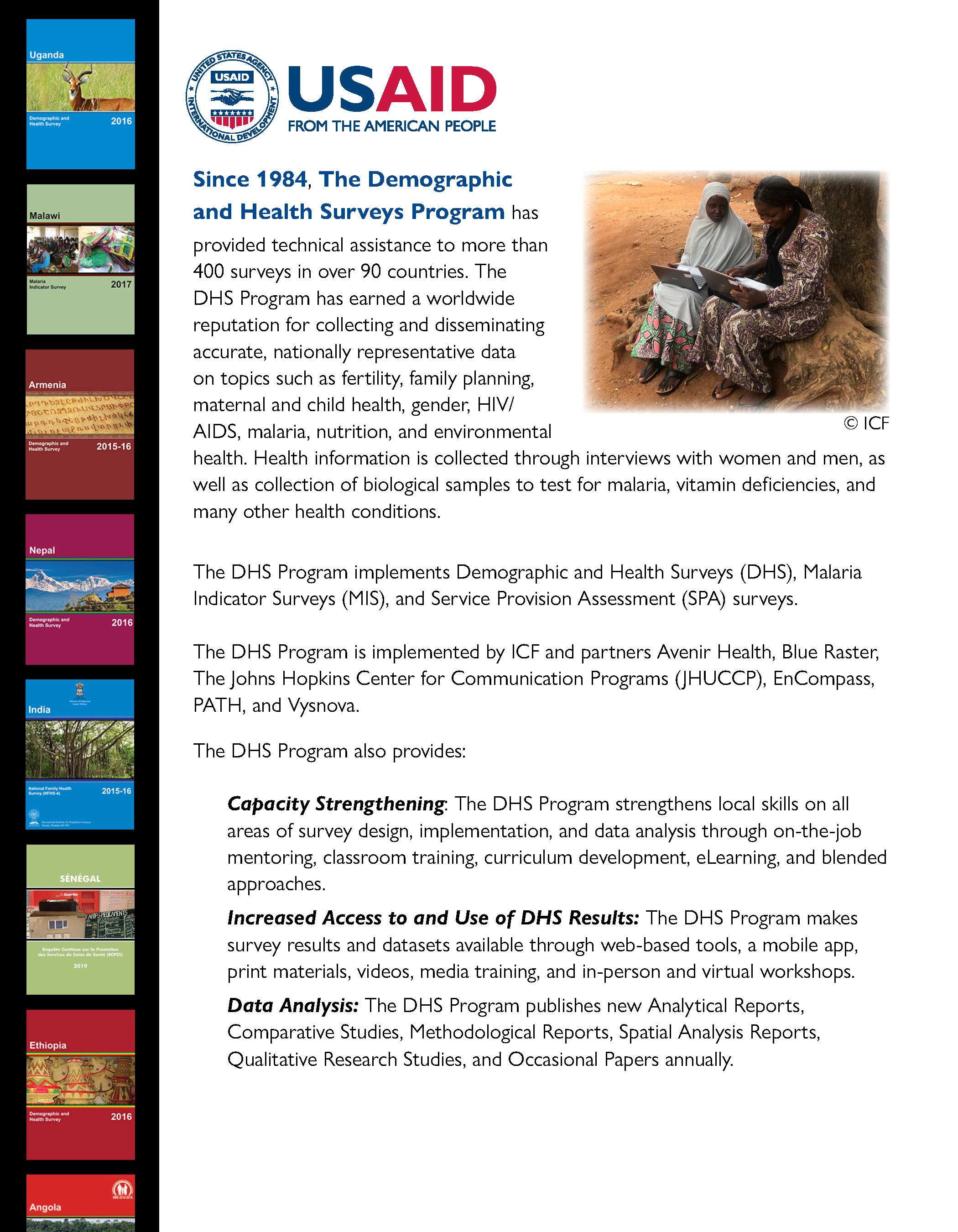| Body: |
Dar es Salaam, Tanzania. More than 70 percent of all health facilities in Tanzania offer a full range of basic health services. Curative care for sick children is almost universally available, and three in four services provide antenatal care and childbirth. At the same time, lack of running water and shortage of some types of medicines compromise the quality of care offered to children and adults. These problems are found nationwide, in both governmental and non-governmental facilities, and in all types of facilities, according to a new survey conducted by the National Bureau of Statistics and the Ministry of Health and Social Welfare.
While many critical gaps exist, the new study shows important strengths in Tanzania’s health care system. More than 70 percent of all health facilities in Tanzania offer a full range of basic health services, including child care, family planning, and treatment for infectious diseases. Curative care for sick children and for sexually transmitted infections is almost universally available in Tanzanian health facilities. Most hospitals and three-fourths of health centres offer 24-hour delivery services for pregnant women. Antenatal care (ANC) services are available in 4 out of 5 facilities, including almost all government facilities. And, nearly 60 percent of health facilities offer the full range of client comfort amenities: a protected waiting area; a basic level of cleanliness; and a functioning client latrine.
HIV services are available throughout Tanzania. About one in four health care facilities have an HIV counseling and testing system, and one in eight provides prevention of mother-to-child transmission services. Antiretroviral treatment is far less available, however, Nationwide, however, only 4 percent of all health facilities prescribe antiretroviral therapy.
Problems with infrastructure and infection control plague Tanzanian health care services. Only 33 percent of health care facilities in Tanzania, including half of all hospitals, have running water. Other items needed for infection control are also in short supply: one-third of facilities do not have soap; only half of facilities have latex gloves; and less than one-third has adequate systems for disposing of needles and infectious waste. These conditions endanger both staff and patients.
Stock outs of medicines and poor storage systems also affect patient care. While more than 90 percent of health facilities say they offer immunization services, only 74 percent had vaccines available at the time of the survey. Among these facilities, less than half have the necessary equipment for correct temperature monitoring, and about a third do not maintain the cold chain at all. Improper storage destroys the effectiveness of some vaccines, making them useless for disease prevention. Medicines to cure tuberculosis (TB) are available in only 60 percent of facilities following the national DOTS strategy (directly observed treatment short-course). Patients who do not take their TB drugs regularly run the risk of developing drug resistant and hard-to-cure strains of TB.
Insufficient counseling, not lack of drugs, is a problem in some services. For example, most facilities providing antenatal care had the antimalarial medicine for intermittent preventive treatment (IPT) for pregnant women. However, less than one third of pregnant women were given the first IPT dose in the facility under the supervision of a provider, and less than 10 percent were advised to get the second dose. Similarly, only half of pregnant women were given a voucher for insecticide treated bed nets (ITN) and told about the importance of using ITNs regularly. Other critical issues were neglected in antenatal care (ANC) services. During more than 1,000 observed counseling sessions in ANC clinics, providers described the risk symptoms of pregnancy in only one-fourth of sessions and discussed nutrition in less than 20 percent.
The 2006 Tanzania Service Provision Assessment Survey (TSPA) was carried out by the National Bureau of Statistics and the Ministry of Health and Social Welfare of the United Republic of Tanzania. Macro International Inc. provided technical assistance through the worldwide MEASURE DHS project. The TSPA collected data from a nationally representative sample of 611 health facilities in Tanzania, covering all levels of facilities, from dispensaries to hospitals.
Funding for technical assistance was provided by the United States Agency for International Development (USAID) through the President’s Emergency Plan for AIDS Relief (PEPFAR). Local costs of the survey were financed entirely by the pooled fund of the Poverty Eradication Division (PED) in the Ministry of Planning, Economy and Empowerment.
Additional information about the 2006 TSPA may be obtained from the Macro International Inc. at 301-572-0931 or press@measuredhs.com. You may also contact the headquarters of the National Bureau of Statistics, Kivukoni Front, P.O. Box 796, Dar es Salaam, Tanzania; Telephone: (255) 22 212-2722/3, Fax: (255) 22 213-0852, e-mail: dg@nbs.go.tz. Information may also be obtained from http://www.nbs.go.tz/
|
